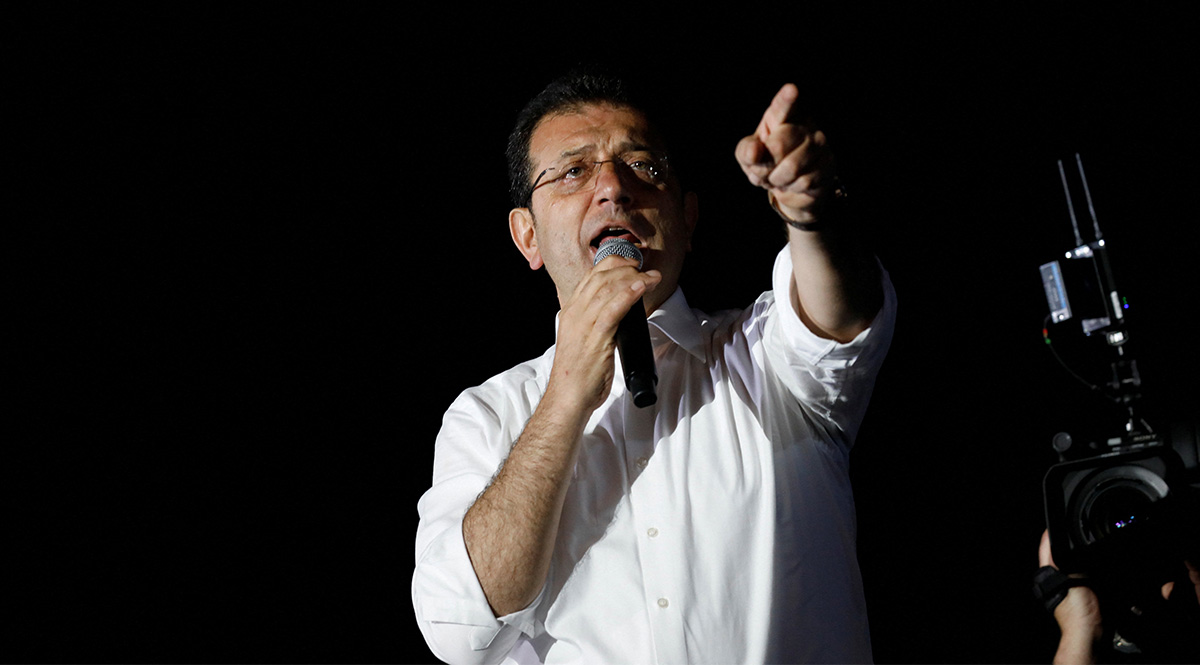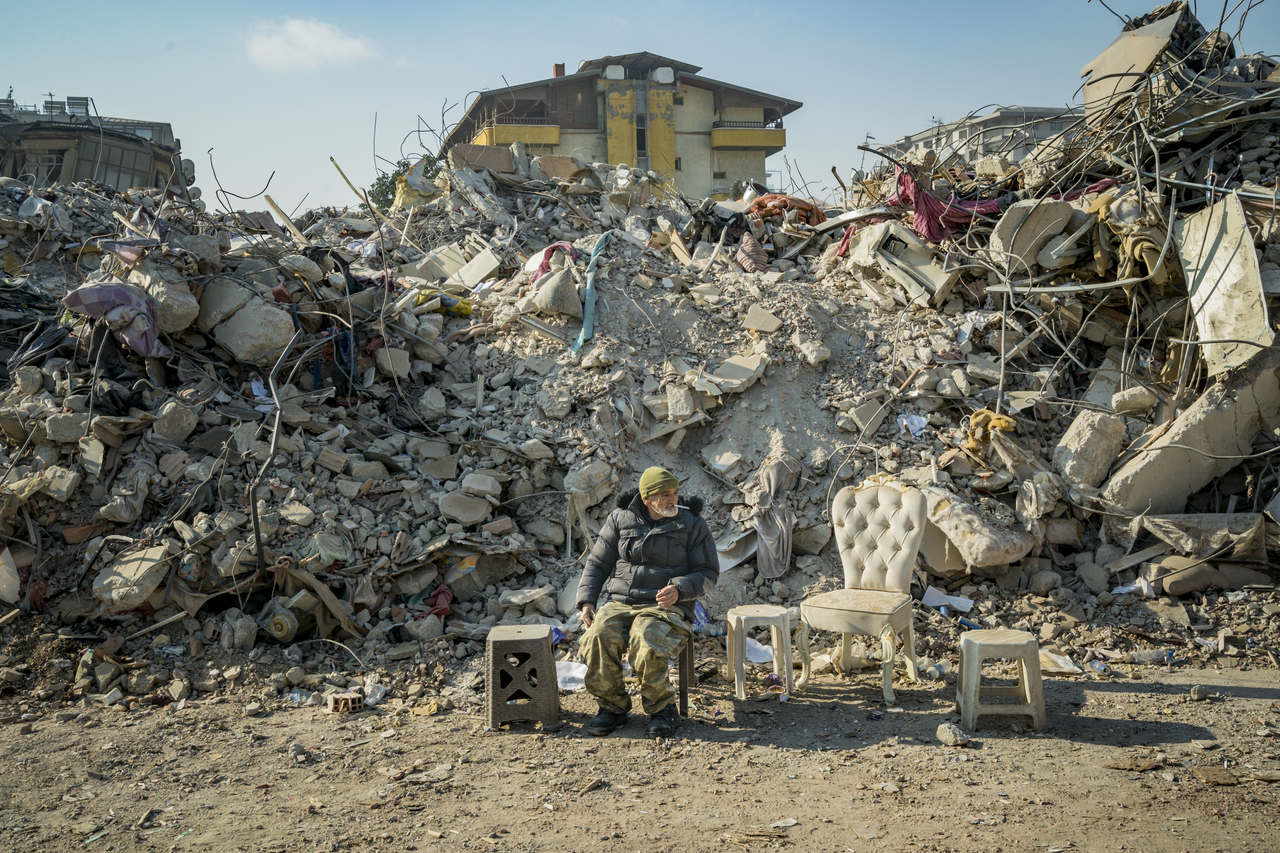Local Election Results Give Türkiye's Opposition New Hope
The renewed victory of Ekrem İmamoğlu, the candidate of the opposition Republican People’s Party (CHP) for Istanbul mayor in local elections, is an optimistic sign for Türkiye’s opposition, which has become divided after its defeat in last year’s parliamentary and presidential elections. İmamoğlu’s political success makes him a likely challenger to Turkish President Recep Tayyip Erdoğan in the 2028 presidential election.
 Dilara Senkaya / Reuters / Forum
Dilara Senkaya / Reuters / Forum
On 31 March, Türkiye held local elections in which citizens elected the mayors of 81 provinces, the highest level of local government. During this year’s elections, the CHP scored its best result in local elections since the 1970s, winning 37.8% of the vote across the country, while support for the ruling Justice and Development Party (AKP) stood at 35.5%, compared to 44.31% of the vote in the 2019 local elections. The next highest places in the elections went to the New Welfare Party (YRP, 6.2%), Peoples’ Equality and Democracy Party (DEM, 5.7%), Nationalist Movement Party (MHP, 5%), and the Good Party (İP, 3.8%). The CHP gained control of Türkiye’s five largest provinces—Istanbul, Ankara, Bursa, Izmir, Antalya. For the first time in two decades, it achieved electoral success in the conservative province of Kilis, among other provinces where the AKP had previously won.
Pre-Election Context
After the opposition’s electoral defeat in May 2023, its Table of Six coalition disintegrated, and the CHP’s former leader, Kemal Kılıçdaroğlu, was replaced in November by a younger chairman advocating the need for change in the party, Özgür Özel. The most important test for the new party leader was the March 2024 local elections, especially the race to maintain victory in Türkiye’s largest cities. The pre-election situation was complicated by the fact that the CHP failed to win support from its existing ally the Good Party and the pro-Kurdish DEM Party formerly known as the People’s Democratic Party (HDP). The local elections, like the parliamentary and presidential ones preceding it, were held in an atmosphere of increased control by the government camp over traditional media coverage, and the candidates of Türkiye’s ruling coalition of the AKP and the MHP had a better chance of reaching the public, due to easier access to campaign funds.
Candidates and Themes in Istanbul
Running for mayor of Türkiye’s largest city was Murat Kurum, the candidate of the AKP and MHP coalition, who previously served as minister of the environment, urbanisation, and climate change, but who was complicit in the government’s inept response to last year’s earthquake. His challenger was Ekrem İmamoğlu, who defeated the ruling camp’s candidate, Binali Yıldırım, Türkiye’s prime minister from 2016 to 2018, during the repeated local elections in 2019. At the time, the CHP politician was successful thanks to the support of all parties in the National Alliance coalition and the HDP. The most important topic during this year’s local campaign was protecting the city from earthquakes, which seismologists say are almost inevitable in Istanbul, an issue that gained prominence after last year’s earthquake in southeastern Türkiye. Kurum promised to build 600,000 homes, which is about half of the city’s housing stock at risk. İmamoğlu also pledged to build 20,000 housing units for the city’s poor and renovate 110,000 homes likely to be destroyed in a quake. In addition to promises to secure the city, he offered to hold the European Games in Istanbul in 2027, financing initiatives that develop technology and the arts, and opening new spaces with urban greenery. Both candidates also announced improvements to the city’s public transportation management.
Istanbul’s Importance to Türkiye
The electoral competition for Türkiye’s largest city is important for economic, political, and socio-cultural reasons. Istanbul has a population of about 15.7 million, or about one-fifth of the country’s population. The province produces about 31% of the country’s total GDP, or about $276 billion, which is crucial to the functioning of the national economy. Exercising power in the city is important for personal reasons for Erdoğan, for it was here that he won the 1994 election for mayor on behalf of the Prosperity Party (RP), which was then led by Necmettin Erbakan, Türkiye’s prime minister from 1996 to 1997. After his success at the local level, Erdoğan entered the world of big politics and became one of the founders of the AKP party, which has been in power in Türkiye since 2002. During his reign, the Turkish president has clearly exposed the Muslim pillar of the country’s identity, both in foreign and domestic policy dimensions, which has to do with the city. He spearheaded the restoration in 2020 of the mosque function of the Hagia Sophia Church, which had held museum status since the time of the country’s first president Mustafa Kemal Atatürk. That decision contributed to growing social polarisation across Türkiye between representatives of the secular opposition and supporters of the conservative-nationalist camp in power. Moreover, it became a symbolic manifestation of Erdoğan’s political hegemony on the national political scene.
Reasons for the Defeat of the Ruling Camp
Although Erdoğan made a correction in economic policy after winning the presidential and parliamentary elections in May this year, it did not significantly improve the situation in the country. One of the main reasons for the ruling camp’s defeat in this year’s local elections was the prolonged economic crisis prevailing in the country, which has resulted in the deterioration of the material situation of pensioners and the pauperisation of the middle class in large cities. According to the state statistics office TÜIK, Türkiye’s annual inflation rate in March this year was 67.07%, but the independent ENAG Inflation Research Group says it was 121.98%.
Dissatisfied with the situation in the country are the traditional supporters of the power camp, which had been effectively managed by the YRP, led by Fatih Erbakan, the son of the late Necmettin Erbakan. The party was part of the People’s Alliance in last year’s elections and supported Erdoğan’s presidential candidacy. During this year’s local elections, the party fielded its own candidates and claimed victory over the AKP in the country’s conservative provinces, such as Yozgat and Şanlıurfa. Among those who voted for the YRP were religious conservatives in the older age group who have good memories of the RP’s rule in the 1990s, as well as voters dissatisfied with Türkiye’s maintenance of good economic relations with Israel, despite the ongoing war in Gaza.
Conclusions and Outlook
İmamoğlu’s decisive victory in the local elections—the difference in votes between him and his main rival amounted to more than 997,000 votes (51.14% to 39.59%)—has made him Erdoğan’s most serious political opponent. In İmamoğlu’s favour is that he has positioned himself as a centrist politician and is able to reach out to both the CHP’s traditional base and Kurdish voters, which is an important indication for the 2028 presidential elections. The CHP’s electoral success nationally, could provide the impetus for the opposition to mobilise again in the 2028 parliamentary and presidential elections.
The opposition’s assumption of power may make those in power more interested in involving Poland—which supports Türkiye’s membership in the EU—in normalising relations with the Community, including accelerating the modernisation of the customs union and bringing about visa liberalisation.
In the near future, much will depend on whether the new local government will be able to capitalise on the credit of trust it received from voters. Internally, the ruling coalition still has enough time to make up for its losses before the 2028 elections, and Erdoğan has said he will not disregard the people’s decision made in the elections. Türkiye’s ruling camp can be expected to continue its existing efforts to attract foreign investment from Europe, the Persian Gulf states, and Russia in order to be able to fund aid to earthquake-stricken regions and implement the country’s economic recovery programme.




.jpg)
